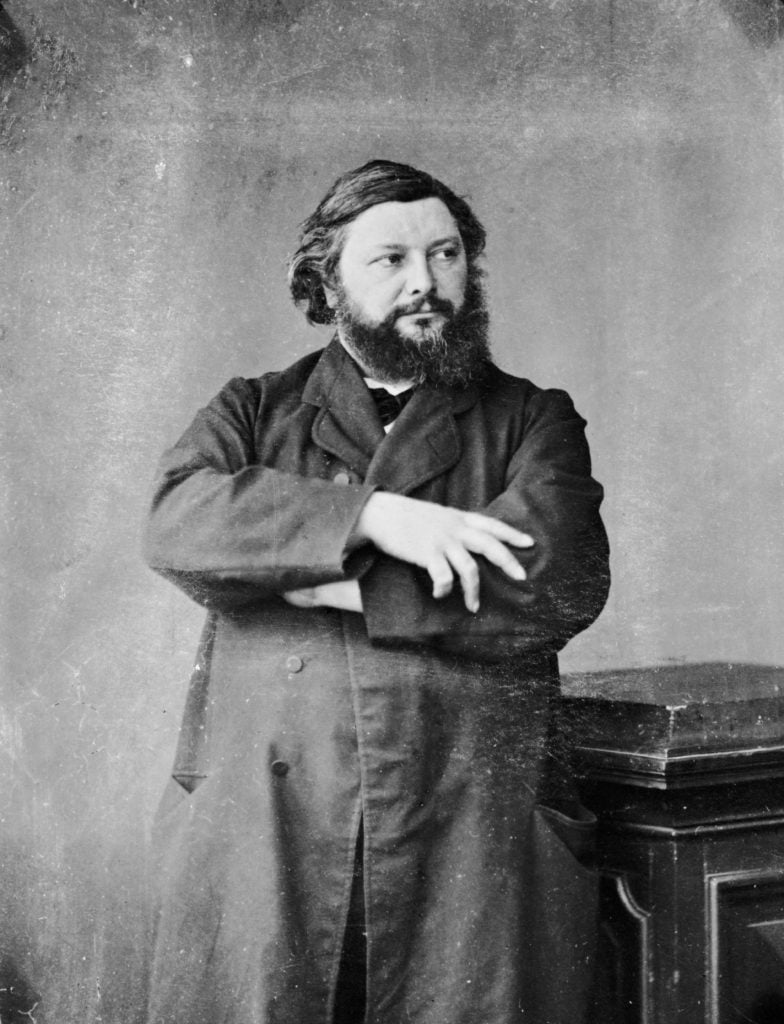Law & Politics
After an Eight-Year Legal Battle, Facebook Ends Its Dispute With a French School Teacher Who Posted Courbet’s ‘Origin of the World’
Both parties will make a donation to a French street art group as part of the resolution.

Both parties will make a donation to a French street art group as part of the resolution.

Sarah Cascone

An eight-year legal dispute between Facebook and a French school teacher who had his account shut down for sharing an image of Gustave Courbet’s 1866 painting L’Origine du Monde (The Origin of the World)—a realistic, closely cropped depiction of a woman’s genitals—has finally come to an end.
Durand had sued in a Paris civil court for the reactivation of his Facebook account and €20,000 ($22,550) in damages. Facebook tried to argue that under the terms of its user agreement, all litigation had to be tried in California court, but in 2015, a Parisian civil court found that France had jurisdiction in the matter—a ruling upheld on appeal—allowing the case to proceed to trial.
In March 2018, the court ruled that Facebook had been in the wrong to shut down Durand’s account. But the decision added that because the teacher was able to sign up for a new account, he was not entitled to damages. (Durand had attracted some 800 followers with his posts about works of art, but Facebook argued that he violated its terms of services by operating his account under a pseudonym.)
Durand had planned to appeal, but the parties instead agreed to a joint resolution in which they’ll each make a donation to the French street art association Le MUR (The Wall).
“This donation ends the legal battle between Mr. Durand and Facebook,” Stephane Cottineau, Durand’s lawyer, told Agence France Presse.
A spate of recent legal action has forced Facebook to reconsider its strict no-nudity policy, which has been applied to artworks such as the Stone Age statue the Venus of Willendorf, a Danish national monument of a mermaid, and even an Evelyne Axell painting of a woman licking an ice cream cone. Nudity is now allowed in images of painting and sculpture shared on Facebook, but photographers are still petitioning the company to allow artistic nudity to appear uncensored in their work.
Courbet’s painting, which belongs to Paris’s Musée d’Orsay, also made headlines in September when French historian Claude Schopp claimed that the long unidentified model for the painting was a ballet dancer named Constance Queniaux.